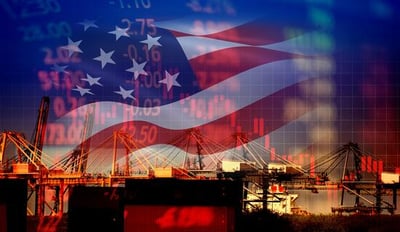
As the world’s second-largest manufacturer, the United States has historically benefited from a robust manufacturing sector, boasting a plentiful supply of manufacturing jobs and competitive power in the global economy. However, high tariffs and expensive labor pose significant challenges. Are there still benefits to domestic manufacturing?
Despite these challenges, domestic manufacturing offers distinct advantages that extend beyond economics. Manufacturing within the United States helps ensure compliance with stringent quality standards, supports local communities through job creation, and strengthens national supply chains. Domestic operations often lead to enhanced oversight, shorter project timelines, and increased transparency throughout the production process. Additionally, manufacturing close to home enhances the ability to innovate, adapt to market demands, and respond quickly to customer needs. In a rapidly changing global landscape, investing in domestic manufacturing can provide both stability and long-term value for businesses and consumers alike.
The Impact of American Manufacturing
Domestic manufacturing has a significant impact on the U.S. economy. According to the National Association of Manufacturers (NAM), $1.82 is added to the economy for every $1 spent in manufacturing. When manufacturing for other industries’ supply chains is taken into account, this contribution could account for up to one-third of the GDP and employment.
In addition to strengthening the local workforce, domestic manufacturing offers significant advantages for both vendors and consumers. Relying on international production and imports can introduce a range of risks, including shipment tracking issues, customs delays, and the potential for product damage during transit.
Domestic manufacturing has a shorter supply chain, which translates to faster delivery, more streamlined service, and better quality control, without the complications of international warehousing and shipping. By keeping production close to home, companies can respond more quickly to customer needs, reduce lead times, and minimize the risk of disruptions caused by global events or logistical issues. This not only enhances product reliability and satisfaction for end users but also provides manufacturers with greater oversight throughout each stage of the process—leading to more consistent quality, improved inventory management, and the ability to implement innovations or address challenges as they arise quickly. Ultimately, a localized supply chain fosters stronger relationships among suppliers, manufacturers, and customers, thereby reinforcing trust and collaboration throughout the industry.
An Interview With Kimberly Amadeo, U.S. Economy Expert for The Balance
To learn more about the impact of domestic manufacturing, we spoke with Kimberly Amadeo, who has 20 years of senior-level corporate experience in economic analysis and business strategy. Here are a few of the questions we posed about domestic vs. outsourced manufacturing, and what she had to say:
In your opinion, what is the #1 benefit of utilizing domestic manufacturers?
There are many reasons, but the #1 benefit is the protection of intellectual property. That includes manufacturing processes as well as products. Some countries, such as China, allow their factories to copy U.S. manufacturing processes and designs. They use this knowledge to make "knock-offs" that they can sell for less. They create just enough differences to avoid costly lawsuits. Once the technology is copied, that genie cannot be put back into the bottle.
You’ve been writing about the U.S. economy for years. Has the shift toward foreign manufacturing affected the overall health of our country? If so, how?
The biggest impact has been on unemployment. According to the Bureau of Economic Analysis report “Activities of U.S. Multinationals,” foreign affiliates that are majority-owned by U.S. multinationals employed 14.3 million workers in 2015. That's more than double the 5.9 million Americans who were unemployed in June 2019, according to the Bureau of Labor Statistics.
If all those jobs returned, it would be enough to also hire the 4.3 million who were working part-time but would prefer full-time positions. Of course, not all those jobs could return. Many foreign employees are hired to help with local marketing, contacts, and language.
What would you say to business leaders in America who want to go with the “cheaper” option and shift operations overseas?
They are running a risk. First, their products, processes, and technology could be copied by their foreign partners. Moving operations overseas also diverts the attention of top management from other core business needs, such as marketing and product development. Manufacturing overseas also increases the company's exposure to volatility in transportation costs and exchange rate risks.
Herculite: Made in the U.S.A.
As Kimberly Amadeo explains, domestic manufacturing is the safest route, benefiting vendors, consumers, and the overall U.S. economy.
We’re proud to say that our products are made in America. Our domestic manufacturing supports local economies and communities, enabling us to produce high-quality products that comply with FTC standards. We also carefully select local wholesale distributors for our marine and awning fabrics to maximize quality and availability.
Herculite®, Inc. has been specializing in high-performance laminated & coated fabrics for more than 60 years. Learn more about our commitment to domestic manufacturing.